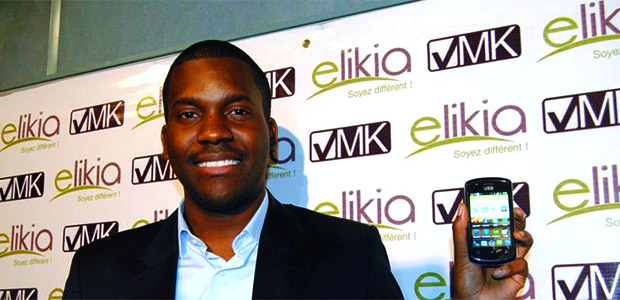First African-designed smartphone and tablet hit market


When 26-year-old Congolese entrepreneur Verone Mankou followed up the introduction of the first African-designed tablet with the announcement of the first African-designed smartphone, some within the local tech community looked on skeptically. This was Africa after all, and other tablets and smartphones claiming to be "African" were shown to be little more than Chinese designs with only superficial unique traits.
It also didn't help that Mankou's company, VMK, was based in the Republic of Congo.
Speaking at the third annual Tech4Africa conference in Johannesburg last month, Mankou touched on the difficulties of running VMK from Congo. He also stressed, despite the hurdles, why he thought it was important for an African company to invest in the local smartphone and tablet markets. "Only Africans can know what Africa needs," he said.
"Apple is huge in the U.S., Samsung is huge in Asia, and we want VMK to be huge in Africa."
His products, the Way-C tablet and Elikia smartphone are part of an effort to take on the technology giants in his own back yard.
The Way-C, or "the light of the stars" in the local Lingala language, is a small tablet roughly the size of Samsung's Galaxy Tab. It measures 7.4" x 6.7" x 0.5" and weighs 13.4 ounces. Wi-Fi connectivity and 4GB of internal memory come standard. While its specs aren't eye-popping, the price is. At $300, it comes in less than the iPad mini.
The Elikia ("Hope") is an Android-based smartphone with a 3.5-inch display, rear and forward facing cameras, 512MB of RAM, and a 650MHz processor. It retails for $170 without a contract.
The aim, says Mankou, is to get these products into African hands by making them easier to afford.
 There has been some negative reaction on local tech blogs, and much of it seems to come from a belief that these products are made by what is called an original equipment manufacturer, or OEM. A few years ago, Africa's "first" tablet was found out to be an OEM product available not only in Nigeria, but throughout the world sold under different names. Its claims of being African were shot down, and the company was regarded as just another merchant pushing foreign products on local consumers.
There has been some negative reaction on local tech blogs, and much of it seems to come from a belief that these products are made by what is called an original equipment manufacturer, or OEM. A few years ago, Africa's "first" tablet was found out to be an OEM product available not only in Nigeria, but throughout the world sold under different names. Its claims of being African were shot down, and the company was regarded as just another merchant pushing foreign products on local consumers.
Mankou's VMK is adamant that this is not the case with its products, even devoting a page on its website to address the accusation.
Brazzaville, the capital city and home base for VMK, is known more for being an entrepôt to the nation's huge oil reserves than a home for innovative business. The World Bank ranks Congo-Brazzaville as the 183rd worst country to do business in, out of the 185 nations measured. It often takes more than half a year to start a company in Congo-Brazzaville, compared to just 13 days in the States.
But this is where Mankou chooses to do business.
"Congo has the same problems as all sub-Saharan African countries: it's difficult to get funding, so it's difficult to create big projects," he told local technology blog TechCentral.
After spending nearly two years fundraising, Mankou finally had enough to start making African-deisgned tablets and later smartphones for his countrymen.
Some of the first images of Elikia show an engraved "Designed in the Republic of Congo, assembled in China," intentionally mirroring Apple's "Designed by Apple in California." Much of the marketing behind the Elikia and the Way-C seems like an attempt to ape the products' Apple counterparts.
Like Apple, VMK has had to answer for manufacturing its products in China, a country with a higher per-capita GDP than the Congo.
Earlier this year Mankou told the AFP that VMK wanted to keep as much of the phone African as possible, but decided to manufacture it in China "for the simple reason that Congo has no factories and for price reasons."
Yet some question the wisdom of manufacturing high-priced items overseas and marketing them to what remains a wealthy elite in Congo.
Mankou plans to sell his products outside of Congo in the near future, and has already moved into 10 other West African countries and even Belgium, France and India.
This post was originally published on Smartplanet.com